Calgary Herald, CHRIS NELSON Dozens of today’s potential leaders of tomorrow recently gathered in the nation’s capital for a faithbased summit aimed specifically at the millennial generation. The 75 young men and women were picked from all parts of the country to take part in the threeday event discussing the role of faith in today’s society and the importance of religious freedom as part of Canadian society. The event, called the Millennial Summit, was organized by the Faith In Canada 150 group, which has been holding a series of meetings and broad-based religious discussions as part of the celebration of Canada’s 150th birthday. All of the participants were born between 1980 and 2000 and came from all types of faith backgrounds. Hannah Marazzi, project lead for the summit, said it was a perfect opportunity to gather those faithful leaders of tomorrow who will play a big part in shaping the country’s next 150 years. “It was a fantastic time,” said Marazzi. “It was so very rich. We had this diverse group of young people addressing major questions such as: ‘ What does it mean to be a Canadian of faith?’ ‘Is there a role and place for faith in public life? ‘How do we move forward in faith and friendship?’ ” She said it would have been remiss not to challenge and engage this generation and great efforts were made to make sure young people from all faiths were included in the summit. “We also wanted representation within those communities, as well. There are different branches of Judaism, various manifestations of Islam and different denominations of Christianity. We wanted the full spectrum.” Among the 75 delegates was Christopher Primeau, vice-president for advancement at Calgary’s Christian Ambrose University. Primeau said that, when he first heard about the Ottawa summit, he was determined to get involved. “To be able to look forward as well as to look back was a great milestone in a year of milestones for our great nation,” he said. “Where is Canada at when it comes to genuine pluralism and the acceptance of diversity in the faith community? It was an opportunity for emerging leaders in the faith community to come together, putting their differences aside and discuss how to create a society around this pluralism and this diversity. “This experiment called Canada is doing very well and it’s one of the greatest, if not the greatest, example of a nation state in the 21st century. But there’s lots more work to be done, not only with our Indigenous population, which is often not involved in the civil discourse, but also prejudice is still an issue to wrestle with as individuals and as a nation.” Primeau, 31, believes the millennial generation may be less religious than earlier generations, yet is more spiritual. “Millennials are not necessarily subscribing to the religious patterns that our parents’ generation may have had, but we’re finding our own way and not letting go of our faith and values,” he said. “Yes, faith is important to millennials, but it is not as ideological.” Primeau is delighted to see youngsters in Calgary embrace inter- faith friendships. Meanwhile, he believes the city leads the nation in such attitudes. “Calgary is much more inclusive than many parts of Canada,” he said. “Walk into any public school here and what you’ll see is individuals from a diversity of backgrounds. You go into those schools and you see pluralism at work.” Marazzi, at age 24, is also part of that millennial generation. She hopes and believes the conversations that started at the summit will continue once the participants are back in their home cities and towns across the country “Our generation has grown up in an increasingly globalized world,” she said. “We’re more aware than ever that we need to figure out a way to dialogue together, and that we belong to one another, and that our common future is bound up with each other. So how do we listen better and how do we belong more to one another? “The No. 1 thing they said they came away from the summit with was a sense of hope about the future ... that they’re not alone and the only people considering these questions.” You can read the article here .
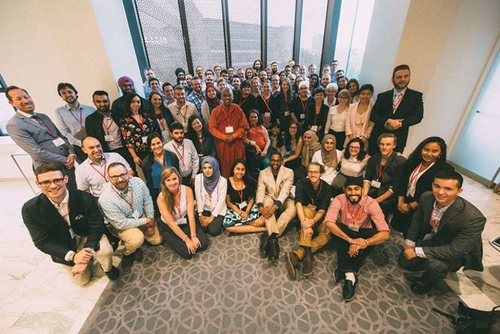
Millennials less religious, more spiritual
August 5, 2017
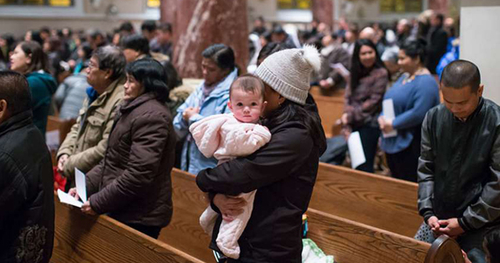
Family census data presents new challenges for the Church
Deborah Gyapong reports on the new Census 2016 data in the Catholic Register.
August 3, 2017
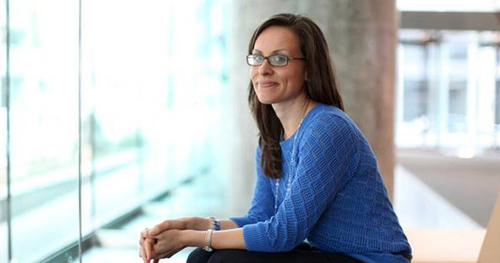
Andrea Mrozek on SiriusXM Canada
Andrea Mrozek appears on National Post Radio via Sirius XM Satellite Radio to discuss the new Census release.
August 3, 2017
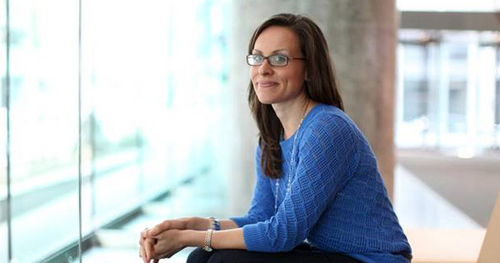
Census reveals more Canadians living in multi-generational households
Andrea Mrozek speaks with Tasha Kheiriddin on AM640 in Toronto about what the decline in marriage means for Canada.
August 2, 2017
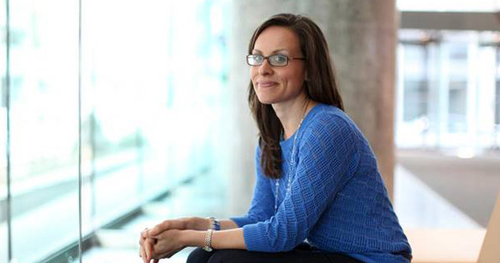
Andrea Mrozek on Ottawa’s CFRA
Andrea Mrozek speaks with Brian Lilley on Ottawa’s CFRA radio about the recently release Census information regarding families in Canada.
August 2, 2017
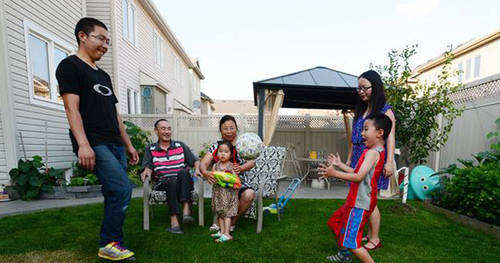
More Canadians living with Grandparents according to new Census
Tasha Kheiriddin welcomes Andrea Mrozek of Cardus Family to look forward to what the new Census information means for Canada's future. According to the Census, more Canadians are living with grandparents, and more Canadian grandparents are raising grandchildren. Listen on AM640 in Toronto.
August 2, 2017
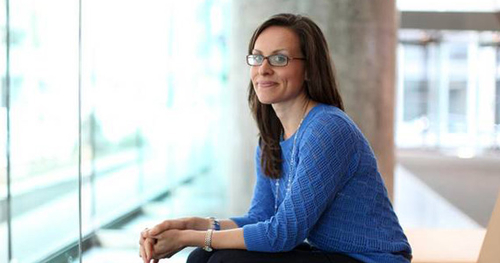
Canadian family stability
Andrea Mrozek discusses the new census information with Danielle Smith on AM770 radio in Calgary.
August 2, 2017
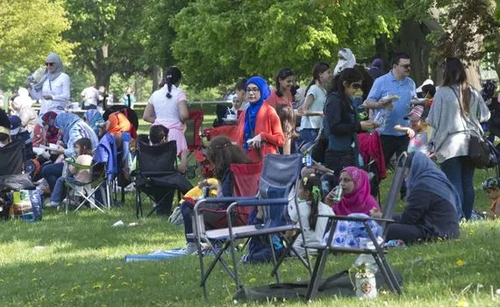
Cities cash in on halo effect
What is the value of a city’s faith-based congregations, in terms of their contributions to the common good? In London, it’s just over $811 million. That’s according to Cardus, an Ontario-based think tank that focuses on “North American social architecture.” And it’s hoping to refine those findings further in the months ahead. The organization estimates that “for every dollar in a religious congregation’s annual budget, a city gets an estimated $4.77 worth of common good services” — a “halo effect,” not unlike the multipliers often used by civic groups or municipalities to plug the spinoff economic benefits of sporting or cultural events and institutions. However, unlike the sometimes woolly estimates bandied about by event promoters or consultants, the halo multiplier is a fairly conservative tool based on real figures, drawn from Canada Revenue Agency data and vetted by McMaster University’s Public Economic Data Analysis Lab (PEDAL). The database builds on a project in Toronto and earlier work at the University of Pennsylvania. Take that London figure, for example. It’s derived from recent government figures that show 351 faith congregations in the city — a wide range including Christians, Muslims, Jews, Sikhs, etc. — with combined budgets of $170,027,809. The multiplier of 4.77, rooted in the earlier studies, brings the “halo benefit” to $811,032,649. That’s not insignificant in a city where the municipal budget itself is in the $1-billion range. Common-good services and assets, in the Cardus model, are captured in seven categories: Green space — lawns, gardens, garden plots, playgrounds, sports fields. Direct spending — operational and capital budgets, special projects and so on. Education — nursery schools, daycare and alternative schools. Magnet effects — conferences, weddings, funerals, religious festivals, money spent by visitors to the congregation and neighbourhood. Direct impact — services offered in areas such as suicide prevention, crime prevention, alcohol and substance abuse programs, marriage and relationship counselling, promotion of pro-social values and civic engagement among youth. Community development — job training, housing, lending services, small business and non-profit incubation. Social capital and care — volunteerism, meeting spaces, social programs such as food and clothing drives. The Cardus study makes clear that theirs is a work in progress; that it’s not so much interested in advocating for a point of view as it is in sharpening the tool’s accuracy and promoting dialogue along the way. What becomes equally clear is that, contrary to perceptions that faith congregations are insular, self-directed communities whose absence from city life would hardly be noticed, their contributions to Canadian life are significant and, perhaps, undervalued. They are good for the spirit — but they are also significant contributors to community building, engagement and a city’s bottom line. “The reality is if these congregations all disappeared, regardless of my individual beliefs are, or the next person’s, or my neighbour’s, all of us would see a decline in common good resources,” said Milton Friesen, a Cardus senior fellow and program director with its social cities projects. “What we’re saying is, if they disappear and you have to pick up that slack, that’s the size of the tab that’s coming your way. And the scale of that is quite significant.” Spiritual and faith communities have always been part of London, from the delicate creation-oriented traditions of our earliest Indigenous peoples, to the dominance of Christendom in the 19th and 20th centuries, to the solid-footed presence and integration of other faith traditions, such as Islam and Hinduism, today. Among Christian churches, a half dozen of them feature prominently in the city’s central core. Imagine downtown London without St. Peter’s basilica, Metropolitan and First St. Andrew’s churches, or St. Paul’s cathedral. Yet several of them have recently faced financial crises threatening their existence. For others, challenges still remain on the horizon. The “halo benefit” reminds us that the practical value of faith communities goes a fair distance beyond the benefits experienced by congregants themselves, regardless of their religious persuasion or geographic location within the city. And it’s a sobering reminder amid the slow decline of some of London’s important faith institutions. The “halo calculator” can be found at www.haloproject.ca. Larry Cornies is a London-based journalist. cornies@gmail.com — — — FAITH IN NUMBERS City Religious Organizations Halo Benefit (in millions) Brantford 108 $105.8 Cambridge 123 $187.2 Chatham 67 $97.4 Goderich 14 $17.1 Hamilton 344 $866.4 Ingersoll 13 $10.9 Kitchener 232 $1,195.4 Leamington 33 $44.4 London 351 $811.0 St. Thomas 16 $12.1 Sarnia 77 $143.3 Stratford 40 $56.5 Waterloo 95 $305.2 Windsor 211 $269.9 Woodstock 56 $77.8
July 29, 2017
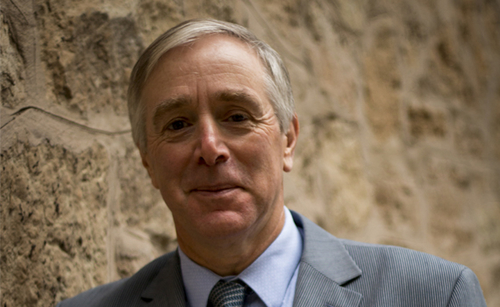
A ban on Muslim cemeteries is an attack on us all
Peter Stockland is senior writer at think-tank Cardus and publisher of Convivium.ca It would be easiest and most gratifying to call residents of Saint-Apollinaire, Que., nasty, anti-Islamic bigots for saying non to having a Muslim cemetery in town. It might, for a handful of the tiny fraction of villagers who voted in last Sunday's referendum on the matter, be true. But such name-calling and virtue signalling would not only miss the point, it would shamefully miss the opportunity to examine the deeper truths that this single-incident ugliness brings to the surface. Among the most crucial of those truths is one offered by a leader of the campaign to deny Muslims their own burial ground. Cemeteries, local resident Sunny Létourneau said as she went door-to-door collecting signatures to force the public vote, are a reflection of society as a whole. Ms. Létourneau insisted neither she nor others opposed to the new cemetery were motivated by anti-Muslim animus. They oppose separate Catholic cemeteries, too. They are against burial on the basis of any faith tradition, period. They want to stretch egalitarianism beyond the grave so that we are equally dead together. By extension, they deny the very existence of sacred earth. Whatever is hallowed by some must be hollowed of its particular holiness until it holds the same degree of emptiness for everyone. Alarming as such thinking might seem, Ms. Létourneau's explanation is more refreshingly candid than the freezer-burned disclaimer of Premier Philippe Couillard, who insisted it doesn't reflect Quebec society as a whole. True, the anti-cemetery bloc won by a minuscule three-vote margin. The "victory" was based on a ludicrously low 36 ballots being cast in a hamlet of 6,400 citizens. It is also true Quebec's political class, from local Mayor Bernard Ouellet to Mr. Couillard himself, was stung by the bumpkin embarrassment and have vowed to find a suitable workaround. But the view articulated by Ms. Létourneau is hardly confined to one bucolic 'burb on Quebec City's south shore. It is as much a fact of life in Montreal's dense urban borough of Outremont. Just as voters used democracy to disallow a Muslim cemetery in pastoral Saint-Apollinaire, so Outremont's urban trendies rallied to pass a zoning bylaw that outlawed building new places of worship; for example, synagogues and mosques. As Montreal-based writer Gideon Strauss wrote, those who carried the day in Outremont used the same tactics, to further the same argument, as their Saint-Apollinaire compatriots. They used the machinery of municipal government to overturn the essence of religious freedom, all while insisting that they had nothing against any specific religion. They just want to keep all society safely insulated from any form of religious faith. In that desire lies a crucial truth that affects all Canadians. It is the truth of our forgetting that religious freedom is about religion, yes, but it is first, last and always about freedom. As my colleague Andrew Bennett, Canada's first and last ambassador for religious freedom, puts it so eloquently: the freedoms of religion and conscience are and must be the first freedoms to which all others are bound. Why? Because if you are not free to believe, and that necessarily contains the freedom to share your personal and communal sense of the sacred in a respectful way, then you are not free at all. At best, you are licensed to act. You are granted permission to behave. You are allowed, whether by the state or by the limits at which your fellow citizens will inflict blunt-force democratic trauma, to be what others say you can be. You will be buried under the weight of Ms. Létourneau's ideal of cemetery egalitarianism. Name-calling in response to single incidents won't resolve that. Only digging deep into the truth underlying the ugliness will bring us face to face with what assaults on religious freedom mean for our whole society. Tiny Saint-Apollinaire has given us yet another opportunity to act. It would be a shame to miss it.
July 23, 2017
Media Contact
Daniel Proussalidis
Director of Communications
